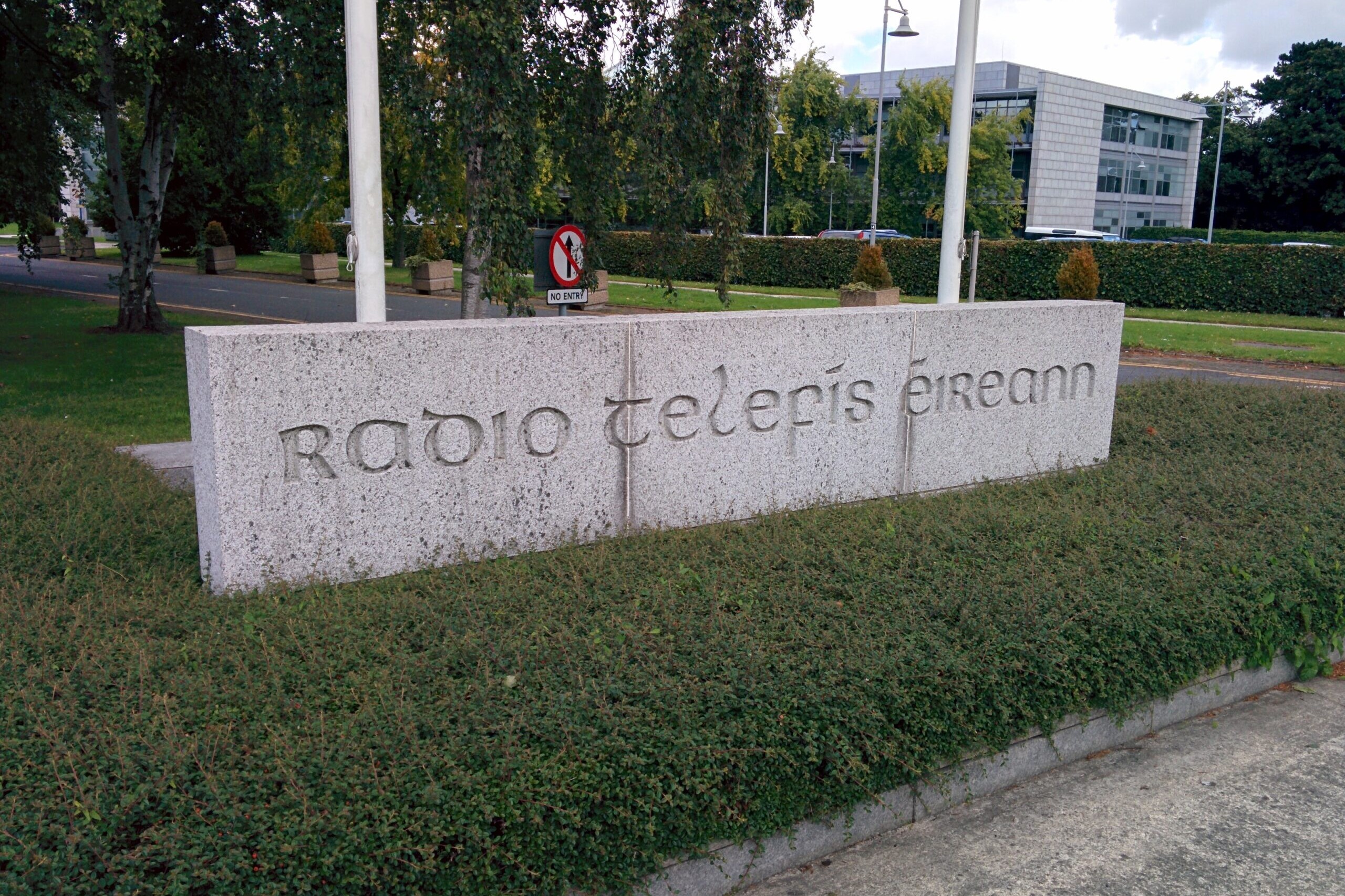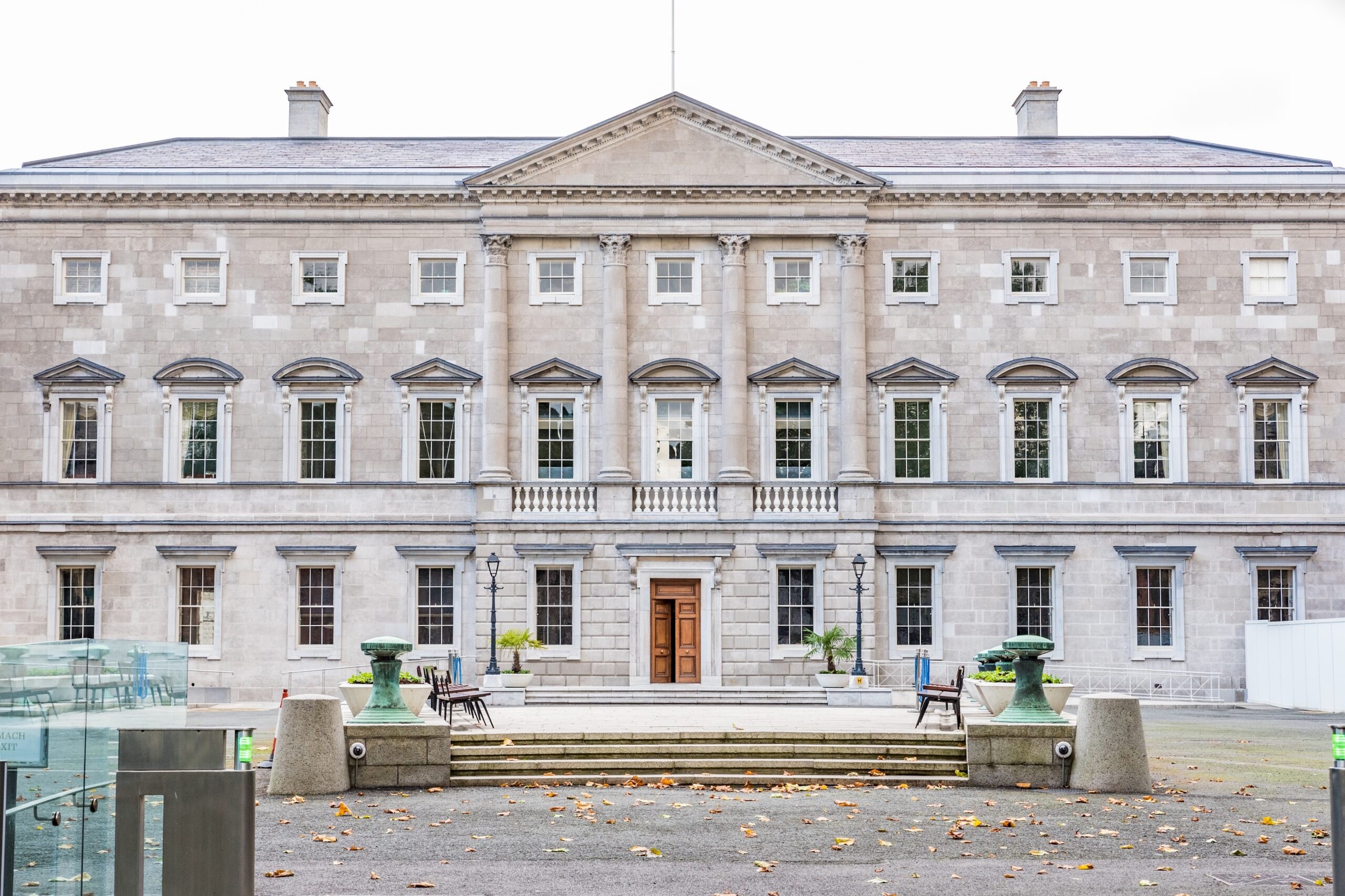New funding structure and some added certainty for RTÉ
5th August 2024
The Irish public broadcaster RTÉ will receive €725 million over the next three years under a new model the media minister called “unprecedented”.

IN BRIEF :
- The Irish government has annnounced 725 million euros for the beleaguered public broadcaster RTÉ over the next three years.
- The funding will provided through a new model that combines a TV licence fee with added funding direct from the Irish government.
- RTÉ and the government say it provides new certainty and allows the broadcaster to move on from troubled times as it prepares its new digital strategies. Critics, however, say it just kicks the can “down the road”.
IN FULL:
The Irish public broadcaster RTÉ will receive €725 million over the next three years under a new model the media minister called “unprecedented”.
The national broadcaster has faced years of funding uncertainty and budget cuts due to dwindling revenue from the annual €160 licence fee and plummeting advertising revenue, which has seen the organisation face huge budget shortfalls.
That difficulty was little helped by the broadcaster becoming embroiled in an expenses scandal and other governance issues that has seen some Irish people boycott their licence fee payments and the government commission a restructure and inquiry.
Last week, media minister Catherine Martin announced the broadcaster would now be funded by a mixed model. The current household licence fee of €160 per year would be retained for the next three years, with the rest of the funding coming direct from the Exchequer.
Under the plan, RTÉ will get €225 million in funding next year from the combined model. That will rise to €240 million in 2026, then €260 million in 2027.
A further €22.2 million will be provided for other public service projects in 2025, including €10 million from the Exchequer for the Media Fund schemes – an increase of €4 million .
The government said net TV licence sales receipts were worth €123 million in 2023, with 93 percent going to RTÉ and seven percent to a national broadcasting fund.
Listen toour podcast
Uncovering and exploring the biggest
issues facing public media
The media minister, Catherine Martin, said it was not a “blank cheque”, nor was it a case of rewarding bad behaviour. Funding has also been set aside to find ways to increase compliance with the licence fee.
“Guaranteeing that funding, that future, is an accomplishment that will serve viewers, listeners and audiences – that will serve all of our society,” she said.
RTÉ director general, Kevin Bakhurst, said the three-year commitment would help the broadcaster plan ahead after “a very difficult time for the organisation.”
“It also means we can continue the necessary transformation of RTÉ and the restoration of trust while also delivering important and engaging public service programming and content across our television, radio and online services, in English and in Irish.”
He added: “Our five-year strategy, which was necessary even before the issues of the past year or more emerged, is about creating a trusted organisation that delivers for Irish audiences.
“We will not take the opportunity that today’s announcement presents for granted.”
A mixed reaction
The decision has been criticised as more of a compromise, if not a back-down.
Even within the government, the past months have seen disagreement about what the future model for RTÉ should be, with many ministers describing the licence fee as antiquated.
“I felt that we couldn’t ask the taxpayer to put their hand in their pocket and pay any more in terms of an increased licence fee. I don’t think that would have been palatable for people,” the Taoiseach, Simon Harris, said last week.
“Our five-year strategy, which was necessary even before the issues of the past year or more emerged, is about creating a trusted organisation that delivers for Irish audiences. We will not take the opportunity that today’s announcement presents for granted.” – Kevin Bakhurst, RTÉ Director-General.
But he added the government’s decision provided a “significant uplift” in the level of public funding and provided “multi-annual” certainty. He said amid misinformation it was important to properly fund public service broadcasting.

Even the media minister Martin had previously said a hybrid funding model could be “the worst of both worlds”, preferring direct funding.
The co-chairwoman of the Trade Union Group, Emma O’Kelly, who is also RTÉ education correspondent, said the government had admitted the licence system was broken.
“To add insult to injury, having ignored a series of expert reports, the government has appointed yet another technical group to examine the licencing system. It would have been more effective for the government to admit that the system is broken and to replace it completely.”
The National Union of Journalists said it was disappointed with the new model, saying the government made a “politically cowardly” decision which was “the worst of both worlds.”
Its secretary, Séamus Dooley, said the can had been “kicked down the road” and that inevitably the TV licence system would have to be abolished.
The government, however, argued retaining the licence fee created a degree of separation for the broadcaster, adding that “one never knows when pressure would come on the Exchequer” for future direct allocations to RTÉ.
The taoiseach, Simon Harris, added the increase was also contingent on further reforms at RTÉ to restore public trust after a difficult year of scandals.
“This saga has gone on for far too long,” he said. “It’s now important that we bring finality to the question of how we fund public service broadcasting.”
Funding certainty
“Our five-year strategy, which was necessary even before the issues of the past year or more emerged, is about creating a trusted organisation that delivers for Irish audiences,” Bakhurst said.
“We will not take the opportunity that today’s announcement presents for granted.”
The five-year strategy was launched in late June, aimed at turning RTÉ into a digital entity. Among the goals are to engage audiences through streaming products and services; to diversify production and development across Ireland; ensure robust financial management, and also to build a sustainable and trusted organisation.
The strategy took into account public consultation which showed support for RTÉ to become a smaller but financially viable organisation; increased investment in digital services; more content from independent Irish producers; and for more content to be produced outside of Dublin.
“This New Direction strategy is about ensuring the future and the relevance of a transformed RTÉ,” Backhurst said. “It is about delivering a strong and independent public service, available to everyone; it is about creating a trusted organisation delivering for Irish audiences; it is about backing creative ambition and digital innovation; it is about supporting Irish culture and bringing people together; it is about reflecting all of the country and supporting the creative industry across the island.”
A revamped governance framework was also included in the new strategy.
Related Posts
15th March 2024
New leadership for RTÉ as licence fee evasion increases
As the new RTÉ Chair was appointed, it…
13th October 2023
RTÉ facing insolvency, Director General warns
Ireland’s Media Minister has promised…
3rd February 2022
Ireland: RTÉ pushing for changes to funding
RTÉ's Director-General says the current…



